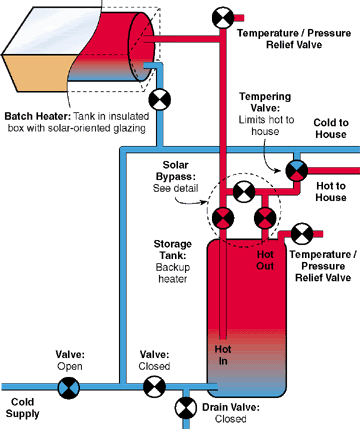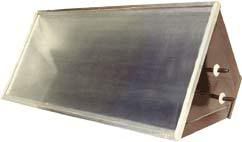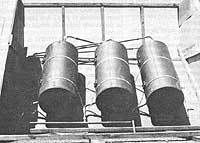
Originally Posted by
jonthepain

I built a solar water heater.
A friend of mine had just upgraded his 20 gal water heater to a 40, so he gave me his old 20. I stripped off the shell and the insulation and painted it black. I built a box around it out of 2x4s, R19, some foil covered foam insulation, Hardiboard, and some old window sashes and panes from old storm windows for the top and south facing side. It's sits out back next to my deck. I plumbed it so it's just upstream of my 40 gal electric water heater. It gets hot as hell in there I tell you what. The electric water heater almost never turns itself on now, unless it's been rainy or cloudy all day.
The whole deal cost me around $100. Found the plans online; apparently they were very popular during the great depression. go figure.




 Reply With Quote
Reply With Quote

 Very creative response to the money drain of having 4 kids in the house. I never went that far, but I have changed all the bulbs to cf's. For areas where we read the paper or need to have a stronger light, I splurge and get the more expensive 100w cfs instead of the 60's.
Very creative response to the money drain of having 4 kids in the house. I never went that far, but I have changed all the bulbs to cf's. For areas where we read the paper or need to have a stronger light, I splurge and get the more expensive 100w cfs instead of the 60's.







